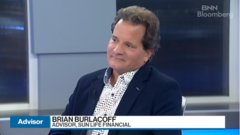Jul 7, 2017
Darren Sissons' Top Picks: July 7, 2017
BNN Bloomberg
Darren Sissons, partner and vice president of Campbell, Lee & Ross
Focus: Global equities and technology stocks
_______________________________________________________________
MARKET OUTLOOK
We are now in the midst of the dog days of summer. The markets are trickling sideways to down. For cost-conscience investors, summer is a great time to buy as the market professionals are generally on holiday so trading volumes are light and prices often weaken through September.
The global interest rate cycle will become a major market catalyst moving forward. The U.S., which lowered its rates first, is now raising rates. Mario Draghi, the president of the European Central Bank, is now echoing a higher interest rate sentiment. In Japan, the sustainability of Abenomics (Japan’s version of quantitative easing) is also being questioned by economists both in Japan and abroad. Back here at home, higher interest rates now appear likely given that last week Stephen Poloz, the governor of the Bank of Canada, began talking up the higher interest rate hyperbole. For banks and finance companies, higher rates are positive but negative for industrials, companies requiring significant capital expenditures, and mergers and acquisitions as the cost of capital increases.
The Canadian dollar has rallied six per cent versus the U.S. dollar, two per cent against the euro and four per cent against the Swiss franc all since May. The Canadian dollar is probably a little overvalued here. Relative to Europe and the U.S., our economy is underperforming due to the drag of the resource-dependent west. A further rate hike in the U.S. and a first interest rate rise in the Eurozone will offset any gains from a higher interest rate here and will place downward pressure on the Canadian dollar. Consequently, U.S. and European equities look relatively inexpensive now in Canadian-dollar terms.
Trump’s reformist policy agenda appears to have stalled based on delivered results, not rhetoric. While it’s too early to tell, the inability of the Trump administration to deliver on tax reform would be a major downdraft for U.S. multinationals, pharmaceutical and technology companies. Their large offshore cash reserves and repatriation of that capital back to the U.S. has been priced into many stocks.
TOP PICKS
INFOSYS (INFY.N)
- The company is attractively valued as the stock has fallen 23 per cent due largely to the Trump administration’s anti-immigration (H1-B visa) and America-first agendas.
- The company, along with its peer group, are leading suppliers of information technology, personnel and expertise to major Canadian, European and U.S. corporations. Raising an access barrier to skilled migrants (be they temporary residents or long-term emigres) will merely create IT wage inflation in the U.S., erode U.S. corporate competitiveness and force U.S. companies to outsource more IT projects offshore.
- Infosys has a strong balance sheet (more cash than debt), a growing dividend currently yielding 2.6 per cent and has announced a US$2-billion share buyback. In the last 15 years, the company has grown its revenue, net income and dividend by an annual average of 18.7 per cent, 17.7 per cent and 25.7 per cent, respectively, in Canadian dollars.
NESTLE (NESN.VTX)
- New CEO joined the firm in January 2017. He is re-visiting scared cows such as the $27-billion L’Oréal investment, divesting low-growth businesses and focusing on working capital efficiencies in order to unlock growth.
- A $27-billion share buyback.
- A growing dividend currently yielding 2.7 per cent.
- Nestle has generated an average total return of 7.8 per cent per annum for 15 years.
Note: Nestle common shares can be bought in the U.S. via the ticker NSRGF.
SNC-LAVALIN (SNC.TO)
- A Canadian national champion, SNC has largely moved sideways since its 2016 emergence from the corruption scandal. The transformative acquisition of Atkins in the U.K., closed on July 4, 2017, will increase its global presence and financial performance. Infrastructure spending, which is accelerating here in Canada and abroad, will be a catalyst to higher earnings moving forward.
- Inexpensively valued by historical metrics and versus peers.
- Dividend yield of 1.95 per cent.
| DISCLOSURE | PERSONAL | FAMILY | PORTFOLIO/FUND |
|---|---|---|---|
| INFY | Y | Y | Y |
| NESN | Y | Y | Y |
| SNC | Y | N | Y |
PAST PICKS: MAY 5, 2017
Updates: We continue to buy all three names for existing and new clients.
BANK OF AMERICA (BAC.N)
Well positioned to benefit from raising U.S. interest rates and a less punitive regulatory regime under the Trump administration.
- Then: $23.74
- Now: $24.83
- Return: +4.59%
- TR: +4.94%
WALT DISNEY (DIS.N)
Pessimism over the performance of ESPN is hurting the stock. This concern will disappear.
- Then: $111.99
- Now: $103.28
- Return: -7.77%
- TR: -7.08%
HALLIBURTON (HAL.N)
Oil field services are looking quite inexpensive here. The Saudi Aramco IPO and Saudi-Russian détente suggest higher oil prices on the horizon.
- Then: $45.58
- Now: $41.78
- Return: -8.33%
- TR: -7.97%
TOTAL RETURN AVERAGE: -3.37%
| DISCLOSURE | PERSONAL | FAMILY | PORTFOLIO/FUND |
|---|---|---|---|
| BAC | Y | Y | Y |
| DIS | Y | N | Y |
| HAL | Y | Y | Y |
PERSONAL TWITTER: @KiwiPMI
COMPANY WEBSITE: www.clrim.com/site/home













